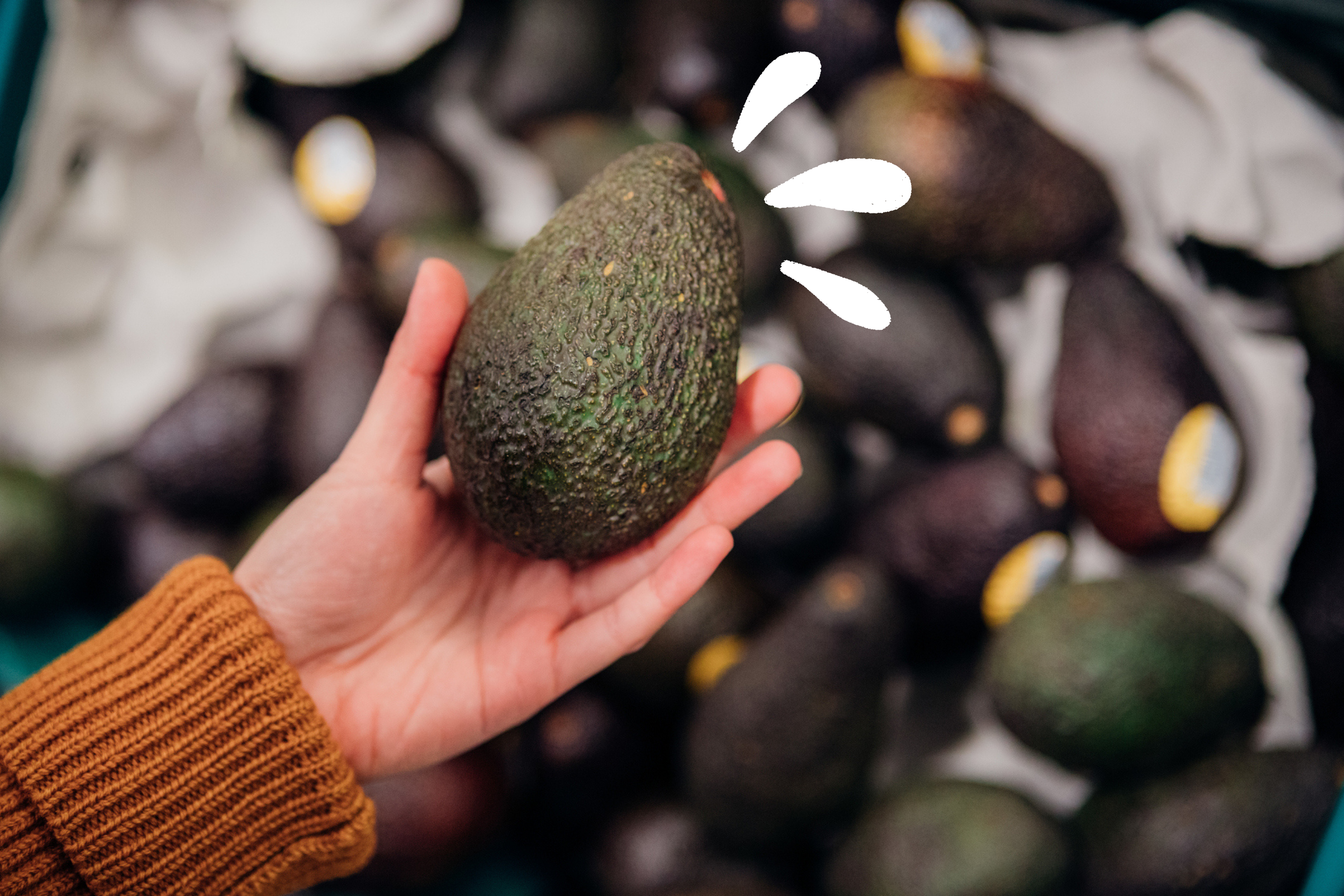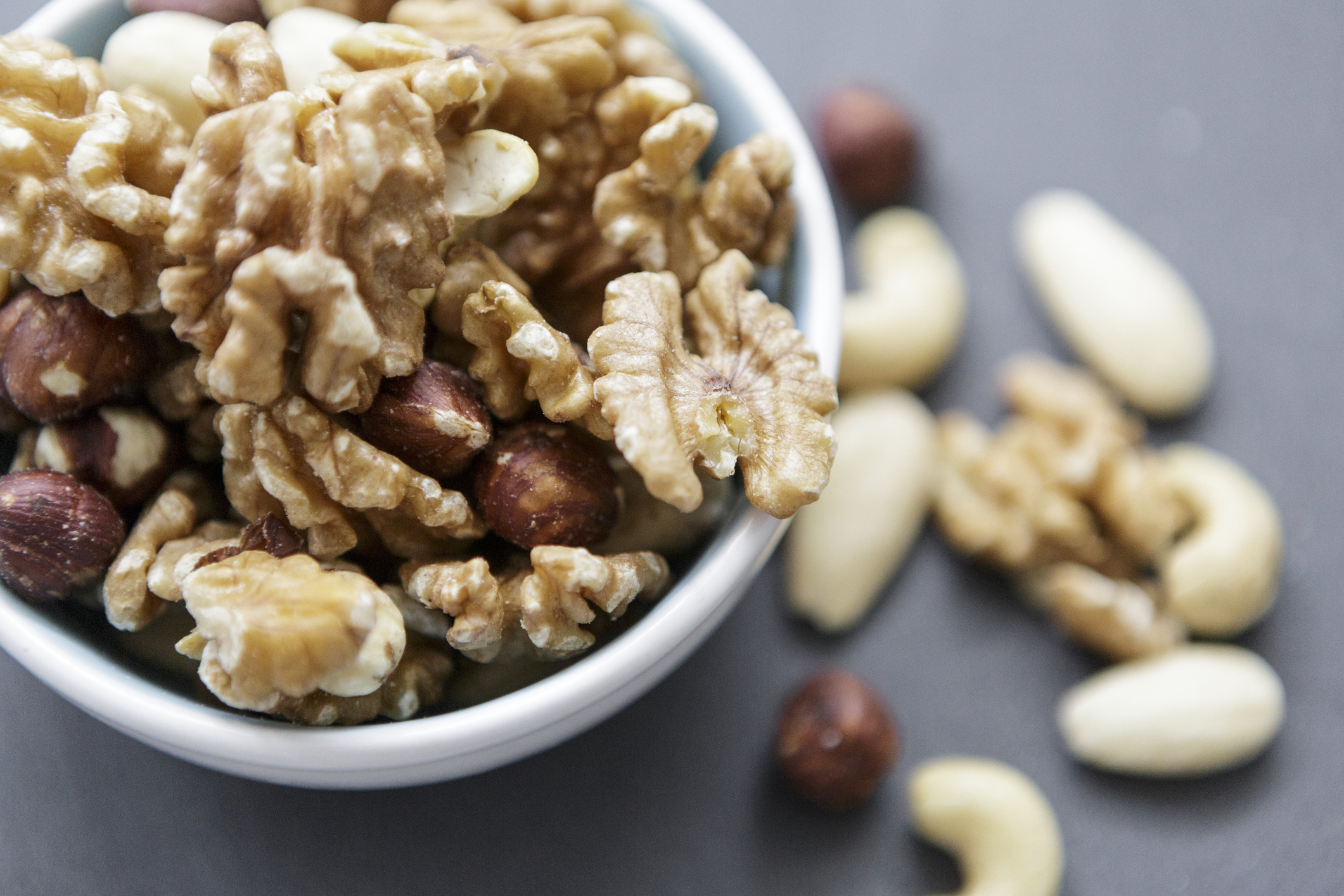Which fats are healthy? Good fats vs bad fats
Despite what many of us have been told, fat is an essential part of our daily diet


Avocado versus cheese, good versus bad - which fats are healthy? Despite what many of us have been told over the years, fat is an essential part of our daily diet and it’s required to keep the body functioning.
It can seem counter-intuitive to include fats in your diet - but not all fats were created equal. Foods high in good fats, such as salmon and avocado - are not only vital for keeping us warm, they help transport vitamins from our food to the places they need to go. Without enough fat, issues related to nutritional deficiencies are bound to crop up - like dry rashes, hair loss, and a weaker immune system.
“You need fat because it helps you to absorb essential vitamins such as vitamin D, A, E, and K, which are known as the fat-soluble vitamins. It plays a key role when it comes to your hormones as well,” says Varsha Khatri, registered nutritionist and founder of Illuminated Health. “But your total fat intake should be no more than 10% of all the food you consume.”
Which fats are healthy?
Healthy fats are polyunsaturated and monounsaturated fats, otherwise known as Omega 3, 6 and 9. These help us to function normally as they insulate the body and structure cell membranes, as well as aid the absorption of vitamins.
You need both of these healthy fats as part of a balanced diet, Varsha explains. “Polyunsaturated fats are your essential fats,” she says. “This means you must get them through food and this is the Omega 3s and 6s. Omega 9 is a monounsaturated fat and this is something your body can make itself so it does not have to come from food.”
But even healthy fats are not on a level playing field. When it comes to getting enough of these two different types, it’s important to focus on the polyunsaturated fats which are the Omega 3s and 6s. “Monounsaturated fats (Omega 9s) are also healthy, but these are less essential as your body can make them based on the other fats that you consume.”
Omega 3s are particularly important because they fight inflammation and protect the heart, Varsha explains. “They’re also great for helping those with arthritis, heart disease, diabetes and autoimmune conditions.”
Parenting advice, hot topics, best buys and family finance tips delivered straight to your inbox.
Omega 6s is essential for the brain and the maintenance of healthy skin, hair growth and bone health, along with helping to regulate the metabolism. But we don’t need so much of it - and overloading can actually cause the opposite effects. “Too much omega 6 consumption can be unhealthy and can reverse the benefits, i.e. cause hair loss,” Varsha says.
Foods with good fats
Known as “heart-healthy” foods, these are products which are all-round better for you with research from Hospital Universitario Reina Sofia in Spain suggesting that they significantly reduce your chance of developing cardiovascular disease.

These are the foods you should eat if you’re looking to increase the amount of healthy polyunsaturated and monounsaturated fats in your diet:
Polyunsaturated (Omega 3 and 6)
- Fish: especially salmon fillets, halibut, cod, mackerel and sardines
- Seeds: including flaxseeds, sunflower, sesame and chia seeds
- Nuts: almonds, walnuts, pecans, hazelnuts and brazil nuts
- Vegetable oils: corn, sunflower and sesame oils
- Tofu
- Soybeans: either roasted or in the form of a butter
Monounsaturated fats (Omega 9)
- Nuts: especially almonds, peanuts, pecans and cashews
- Vegetable oils: including olive and peanut oil
- Peanut and almond butter
- Avocado
- Eggs
Many people who know they need to include more healthy fats in their diet turn to a low-carbohydrate and high-fat diet, such as the Banting diet, which is based around the good fats like seeds, nuts, vegetables and butters. However, you can simply include more of these foods into your regular eating plans to increase your intake of healthy fats.
What type of fat is best to avoid?
It’s best to limit saturated and trans fats overall if possible, our expert says. Too much of either of these two can lead to a higher risk of diabetes, heart disease, and obesity.
Trans fats are best avoided as they’re often included in processed foods, although small amounts can be found in meat and dairy products. “They’re mostly man-made by heating liquid vegetable oils and putting them through a process known as hydrogenation,” Varsha explains.
“Hydrogenated oils increase the shelf life of fat and thus less likely to become rancid. However, the reason they are so unhealthy for you is that they raise your LDL (bad cholesterol) and lower your HDL (good cholesterol). Trans fats are also known to cause inflammation and thus can lead to heart disease, stroke, and diabetes.”
While they’re supposed to mimic saturated fats in the body, they prevent the absorption of nutrients as the liver has a hard time processing them.
So, avoid these fats if possible and to spot products that include trans fats from a mile off, look out for “partially hydrogenated oil” or “vegetable shortening” as an ingredient on the back of food labels - these are just nicknames.
However, there’s no need to completely cut out saturated fats from your diet. In fact, we need them to some extent to maintain normal bodily processes. “Saturated fats are needed within the body as they are a healthy source of cholesterol and cholesterol is needed to make our sex and stress hormones,” nutritionist Varsha says.
It’s only when you have too much that saturated fats tend to cause an issue. So, aim to have a total fat intake that works out to roughly no more than 10% of all the food you consume.
Foods with bad fats
Most of the foods that contain bad fats tend to be animal products and those particularly high in sugar.
While many people like to make a clear distinction between good fats verses bad fats, there is new evidence from Harvard University to suggest that saturated fats may not be as bad for us as previously thought. But the research (including this study from Harvard) remains clear on trans fats: sidestep wherever possible.
Foods with trans fats typically include:
- Margarine
- Non-dairy and dairy-based coffee creamers
- Packaged baked goods
- Shortening
- Microwave popcorn
- Frozen pizza
- Pre-made refrigerated dough for rolls and biscuits
- Fried foods: especially french fries, doughnuts and fried meat like chicken
Saturated fats are a component in:
- Baked goods: including cakes and biscuits
- Cuts of meat heavy in fat: such as bacon or sausages
- Cured meats: including chorizo, salami and pancetta
- Cheese
- Pastries
- Cream products: including ice cream, sour cream and crème fraîche
- Coconut milk and cream
- Milkshakes
- Chocolate and associated spreads
If you struggle with cutting out bad fats from your eating habits, try a plan like the high-protein diet or the Mediterranean diet where the focus is all on fresh and fulfilling foods which keep you feeling satisfied for longer.
What does bad fat do to your body?
Trans and unsaturated fats (i.e, bad fats) can lead to insulin resistance, causing a whole range of serious health issues. These include: diabetes, weight gain, high cholesterol, heart disease and even strokes.
The main difference between good fats verses bad fats is what they do to your body. “Too much unhealthy fat can also raise your LDL and reduce your HDL. While your triglycerides can also rise, which places you at a higher risk of heart disease and stroke. Having a higher HDL means that this healthy type cholesterol can help keep your LDL lower by supporting the liver cleanse of unhealthy fat,” Varsha says.

Grace Walsh is a health and wellbeing writer, working across the subjects of family, relationships, and LGBT topics, as well as sleep and mental health. A digital journalist with over six years experience as a writer and editor for UK publications, Grace is currently Health Editor for womanandhome.com and has also worked with Cosmopolitan, Red, The i Paper, GoodtoKnow, and more. After graduating from the University of Warwick, she started her career writing about the complexities of sex and relationships, before combining personal hobbies with professional and writing about fitness.